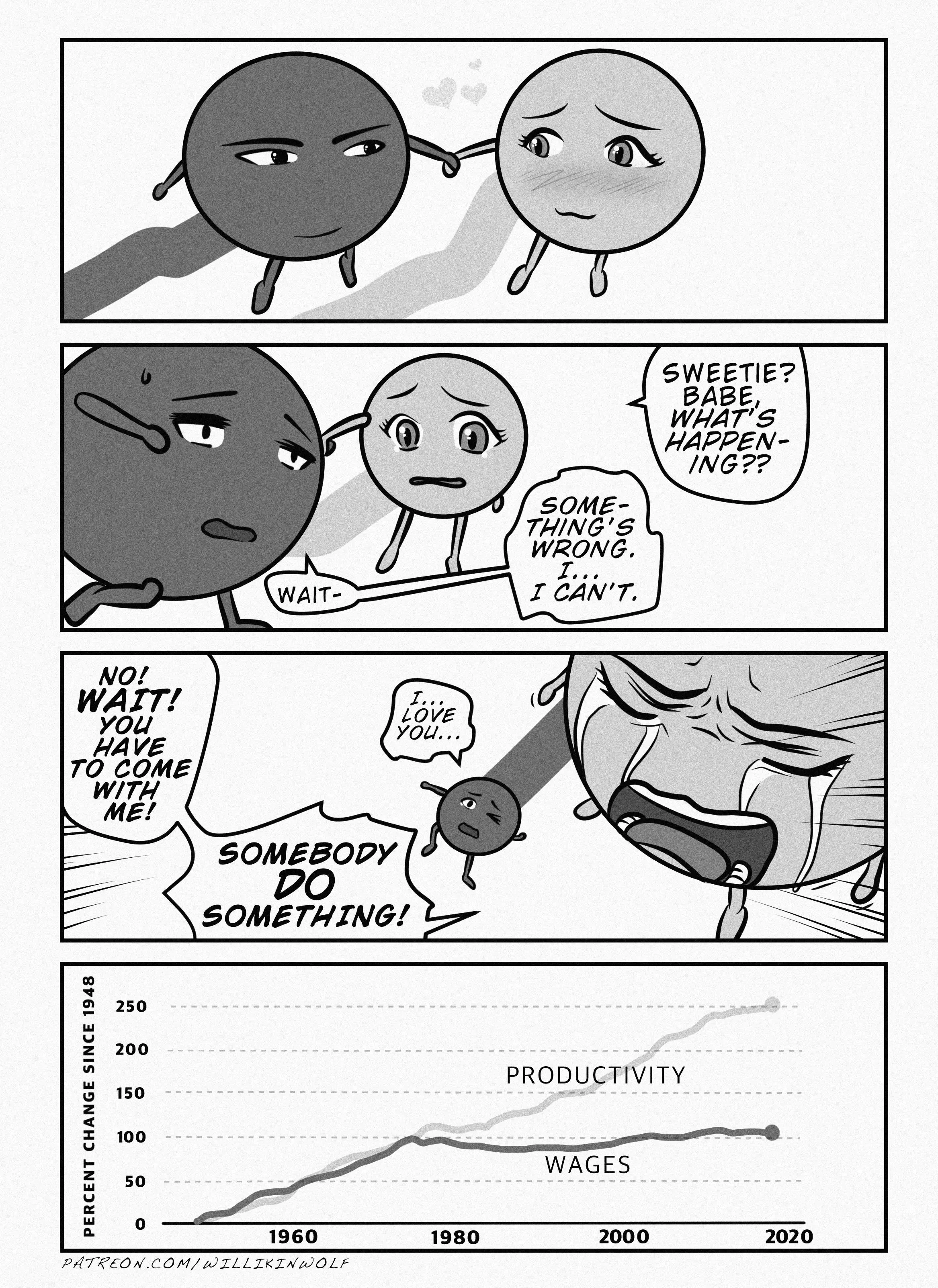this post was submitted on 11 Feb 2024
1050 points (98.3% liked)
solarpunk memes
2845 readers
550 users here now
For when you need a laugh!
The definition of a "meme" here is intentionally pretty loose. Images, screenshots, and the like are welcome!
But, keep it lighthearted and/or within our server's ideals.
Posts and comments that are hateful, trolling, inciting, and/or overly negative will be removed at the moderators' discretion.
Please follow all slrpnk.net rules and community guidelines
Have fun!
founded 2 years ago
MODERATORS
you are viewing a single comment's thread
view the rest of the comments
view the rest of the comments

How do you explain the concentration of wealth in the owner class, then? There are plenty of plots showing that in that website.
Shortage of guillotines.
That’s a separate issue.
Most of the 1% don’t have their value on cash or from wages. It’s all a giant scattered portfolio, funded largely by loans against stocks which make up most of their compensation. Most of the portfolio cannot be easily liquidated, at least not in large amounts, without serious rippling effects in the economy.
The problem comes in being able to place loans against stocks to fund future investments. In theory, it’s a high-risk, high-reward opportunity that’s available to all. It could be a great mechanism for middle-class stock owners to build a comfortable nest egg…but instead what’s left of the middle class has whatever stocks they own in their 401k and if they did have other stocks, the risk is far too great to be palatable to most of them. At the scale of billionaires, though, putting a few million worth of stocks as collateral for a loan to start a new company is practically Monopoly money.
CEO salary is interesting. Most of the big salaries that get people pissed off are in the S&P500. Those salaries are insanely high, far higher than they should be.
It is worth considering, though, that the S&P 500 are some of the largest and most powerful companies in the world. It does deserve some sort of an exceptional wage to be responsible for steering those ships. Not hundreds of millions, probably not even tens of millions, but the CEOs are the figureheads of companies directly responsible for the livelihoods of millions of people, not just their employees but entire economies.
Thats an insane amount of pressure, and ought to be well compensated. And CEOs aren’t really there for leadership qualities or whatever they say they are (although some of the celebrity/prima donna CEOs certainly bring their own different breed of value to the companies they represent…people like Musk, Gates, Jobs, etc). They are there to be a person to point to when shit hits the fan. As they say, you don’t pay a hooker for sex, you pay a hooker to be quiet.
In my opinion, I think that a CEOs pay should, generally, be a significant salary proportional to the market-cap of the company, and a large percentage of stocks should not be able to be touched until 1 year following the CEOs departure from the companies.
We’re past the point of asking for ethics, I don’t think you interpreted the guillotines remark correctly.
Yep. A solution is a tax on registered securities. Any individual holding more than $100 million in registered securities owes 5% on that excess value, per year.
Nah. They don't have to liquidate their holdings. We'll go ahead and do that for them. We'll take 5% of each of their positions each year. Transfer them to an IRS liquidator, who will sell them off over months, years, decades if needed, in small quantities, no more than 5% of traded volume per month.